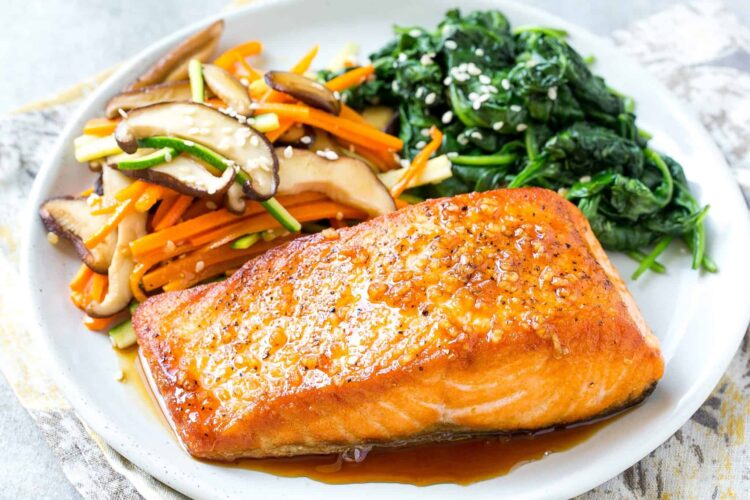Incorporating fish into your dietary routine can be a game-changer if you’re watching your weight. A nutritional powerhouse, fish offers a wealth of benefits that can support your weight loss goals and overall well-being.
It’s time to talk about the science behind the remarkable impact of fish (or any seafood for that matter) on weight management.
Page Contents
A Protein Powerhouse for Satiety

Source: goodhousekeeping.com
Fish is an excellent source of high-quality protein, a macronutrient that plays a crucial role in weight loss. Protein digests slowly, promoting a feeling of fullness that lasts longer, curbing cravings and reducing overall calorie intake. This satiating effect can help you manage your appetite and make healthier food choices, contributing to successful weight management strategies.
Omega-3 Fatty Acids: Nature’s Fat-Burning Allies
Fish is a rich source of omega-3 fatty acids, particularly eicosapentaenoic acid (EPA) and docosahexaenoic acid (DHA), which have been linked to weight loss benefits. Omega-3 fatty acids can enhance fat metabolism, promoting the burning of calories and reducing fat storage. Moreover, they may help regulate appetite hormones, further aiding in weight management efforts.
Vitamin D: A Sunshine Nutrient with Weight Loss Potential
Fish is a good source of vitamin D, a nutrient often overlooked in weight loss discussions. Vitamin D plays a role in regulating metabolism and may influence fat storage. Studies have suggested that individuals with higher Vitamin D levels tend to have lower body fat percentages, highlighting the potential benefits of including seafood in your diet.
A Low-Calorie, Nutrient-Rich Choice

Source: healthyfitnessmeals.com
Many varieties of fish are naturally low in calories, making them an excellent choice for weight-conscious individuals. A 100-gram serving of baked salmon, for instance, provides around 200 calories, while a similar serving of tuna contains around 130 calories. These low-calorie options allow you to enjoy satisfying meals without overloading on calories, a key factor in achieving and maintaining a healthy weight.
Incorporating Seafood Into Your Diet: Practical Tips
To reap the weight loss benefits of seafood, consider these practical tips for incorporating it into your diet:
- Variety is key – Explore a variety of fish options, such as salmon, tuna, cod and shrimp, to keep your meals interesting and flavourful.
- Cooking methods – Choose healthy cooking methods like grilling, baking or poaching to retain the nutrients in fish while minimising added fats and calories.
- Portion control – Be mindful of portion sizes to ensure you’re not overconsuming calories. A 100-gram serving of fish is generally considered a healthy portion.
- Pairing with healthy sides – Pair your fish with nutrient-rich sides like vegetables, whole grains or legumes for a balanced and filling meal.
With its abundance of nutrients and weight-loss-promoting properties, fish emerges as a true culinary ally in the quest for a healthy weight. By incorporating any kind of seafood into your diet, you can reap a multitude of benefits, including increased satiety, enhanced metabolism and improved overall health. It’s time to embrace the bounty of the sea and set out on a journey towards a healthier, truly happier you.




